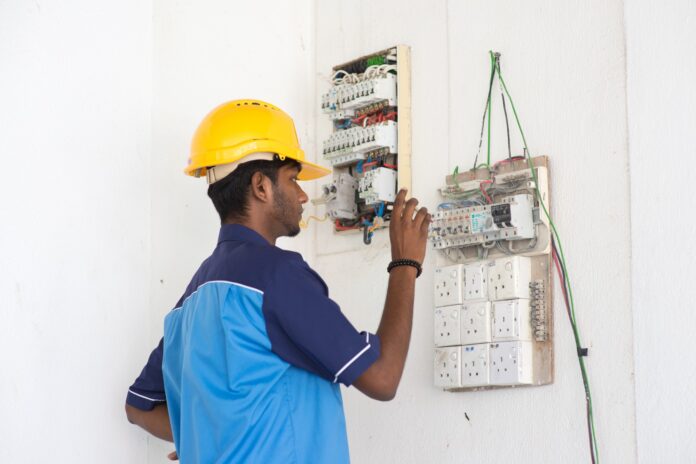
As a freelance electrician, you can choose your specialization, your work hours, as well as your clients. But becoming a freelance electrician also means that you’ll be controlling and responsible for all aspects of your business. You’ll need to not just attract new clients and retain your old, but you’ll also need to know how to balance your cash flow throughout the year.
Electricians are highly sought after as they offer specialized skills that need experience and training. To become a freelance electrician, you’ll first need to go through trade training to become a certified electrician.
As a freelancer, you’ll be relying on your skills and knowledge to offer quality electricity-based services to your clients. To that end, completing an apprenticeship with a master electrician, or working as a salaried electrician for a while is a good idea. The experience you gain can help you gain the knowledge and business acumen you need to succeed as a freelancer later.
Being a freelance electrician is different from working as an employee in a company. You’ll be responsible for your work hours, which can sometimes be irregular. You’ll need to check your own accounts, manage your cash flow, get your licenses, and continue your professional development as an electrician. You’ll also be competing against other electricians in your area to secure your clients. Make you, your business and your equipment are protected. Any hiccups could cost your business big. In these situations, having insurance can provide you with financial coverage through dire times. Check out Public Liability packages by clicking here.
Here’s everything you need to know to become self-employed as a freelance electrician.
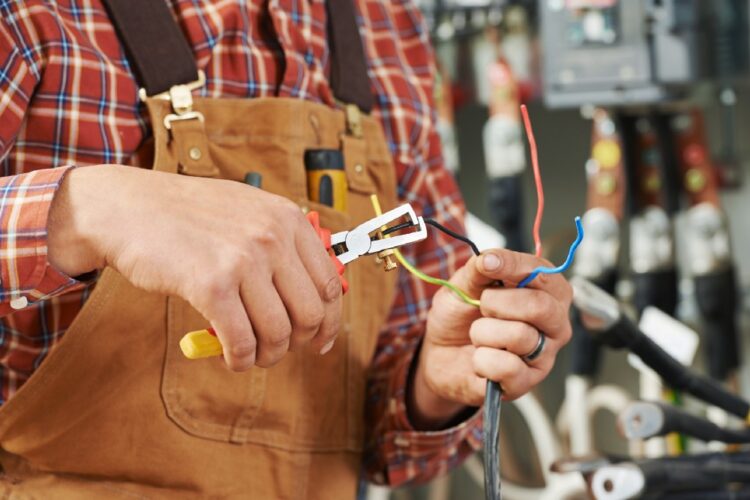
1. Licenses and Permits
Since being an electrician is a specialized skill, you’ll need to have your trade license before you can register as a self-employed electrician. You’ll also need to check with your local authorities in case you need any special permits to operate as an electrician in your geographical area.
Once you have all your licenses and permits in place, you’ll need to register yourself as a sole proprietor with your local authorities. An alternative option is to register as a limited company. But usually, a sole proprietorship registration is more than enough to get you started as a freelance electrician.
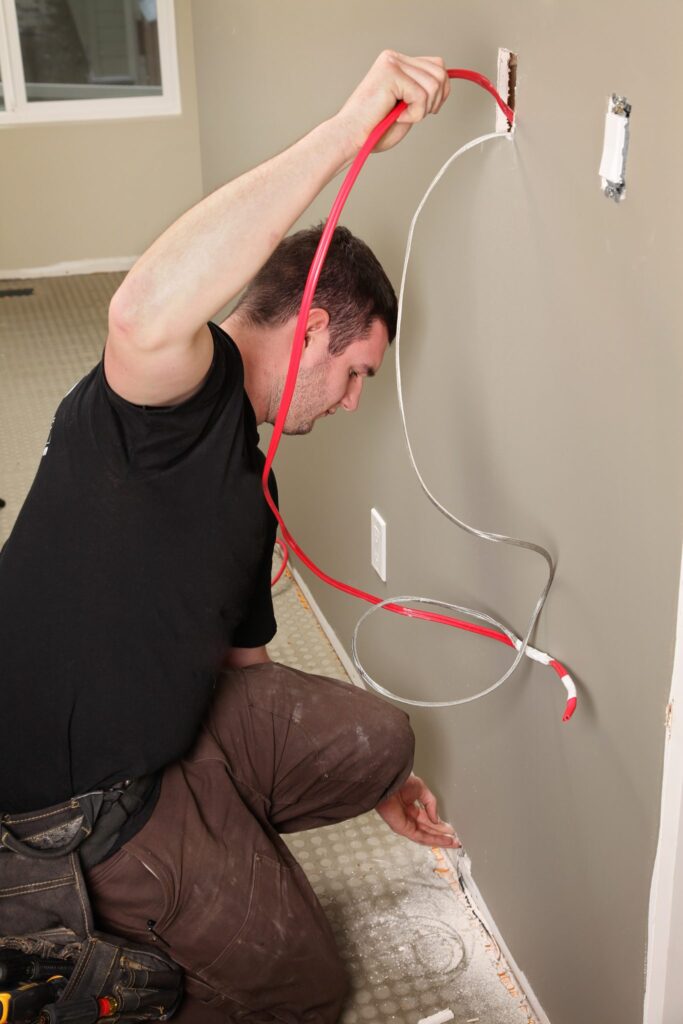
2. Van and Equipment
For an electrician, the tools of the trade are crucial. Even if you can’t afford expensive equipment as you’re starting your career as a freelancer, look for durable options. You need equipment that won’t fail you while you’re in the middle of a job.
You’ll also need a reliable van that can take you to your clients’ locations. Automobile insurance may not be a bad idea, given how important your van will be to your business. Your van is also the place where you’ll be storing a lot of your electrical equipment. You’ll also need to find a reliable parking location for your van, especially if your office space doesn’t provide parking.
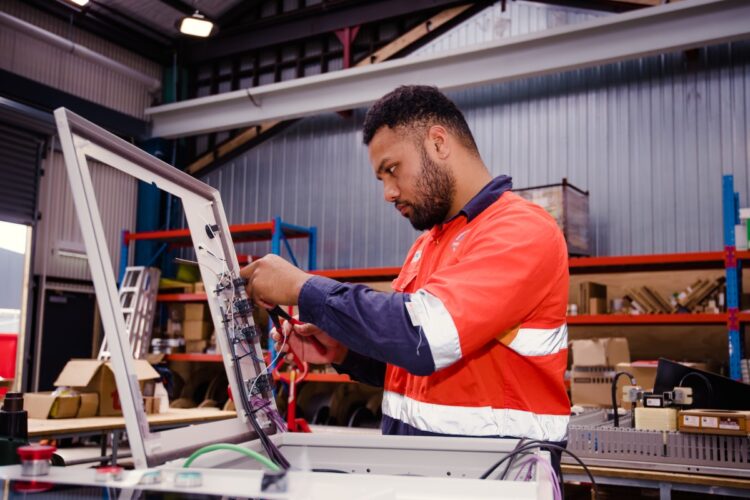
3. Choosing Your Geographical Area
Most electricians cater to the locality and community around them. That’s why you need to select a location from where you can reach a large number of clients, as well as find a large number of clients.
Your specialization as an electrician will also have a say in your locality. Some electricians cater to residential areas, while others focus on commercial properties. You can also be a journeyman. If you have more than seven or eight years of experience before you enter freelancing, you can even be a master electrician.
Usually, however, you’ll either focus on residential or commercial properties. The office space you choose should be near the geographical area you cater to. This will help you reach your clients in a timely and effective manner. You can also distribute feelers and fliers in the area to draw in more clients to your business.
Your office space should be able to hold all your equipment, as well as a workbench. You can alternatively choose to share your office space with another company to reduce costs. See if you can find a trade professional you can collaborate with, such as a plumber. If you can, then sharing your office space can both reduce rent-related costs, and help get you referrals.

4. Marketing and Developing Your Website
As a freelance electrician, you’ll be responsible for securing your clients. Social media platforms like Facebook are great for providing targeted ads for your services within your locality. Google Ads will also let you target the market for your advertising content.
But you’ll also need a website that details the services you offer, as well as how to contact you. You can hire a website developer to build your website. Select someone who understands SEO, so you don’t have to worry about integrating SEO later yourself.
Blogs, videos and other content that draw clients to your website are great ways of attracting prospective clients. You can also ask clients you’ve worked with in the past to provide testimonials, as these can help prospective clients gain trust in your services.
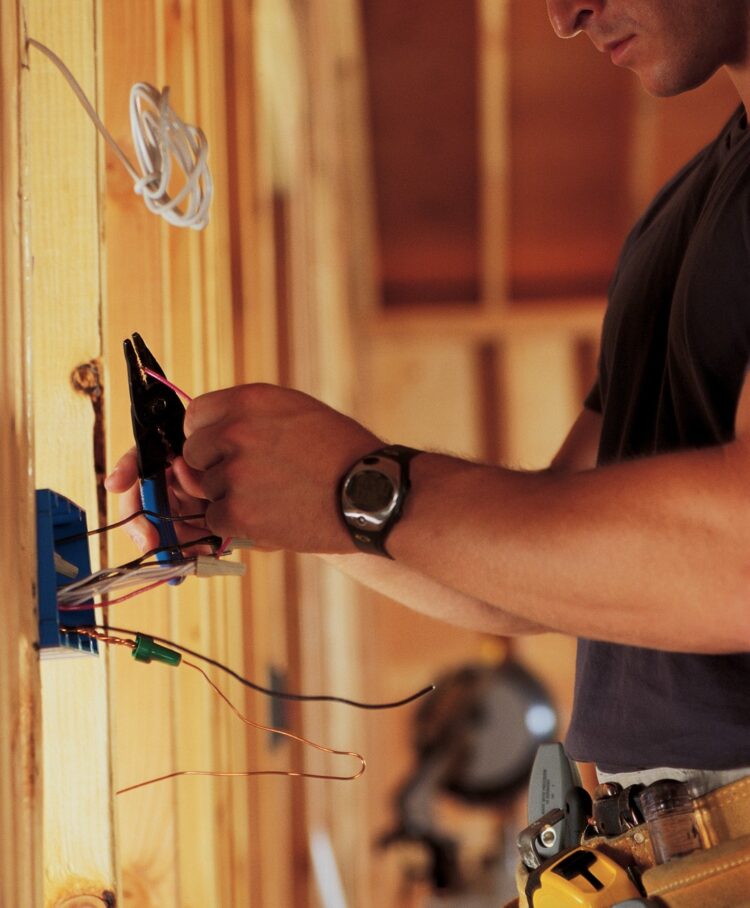
5. Managing Accounts, Cash Flow and Business Goals
As a freelancer, you can’t overlook the business management and operational aspects of running your business either. You’ll need to be vigilant about your cash flow and learn bookkeeping, or you can outsource that work to a trustworthy vendor.
You should also analyze your business goals, as this will indicate how you expect to grow as a freelance electrician, and the rates you should set. You can set a flat rate for your clients, or charge by the hour. How much you charge will depend on your qualifications, expertise, the value of the work you offer, as well as what your competitors are offering. Don’t try to price yourself too low or too high, but instead offer similar prices to your competition. Let the quality of your work set you apart instead of your rates.
From setting up your business to managing your hours, being a freelance electrician can give you the flexibility to grow your career in your own time. You get to be your own boss, do your own marketing, and handle your own finances. If you follow these tips, then you can establish yourself as a successful freelance electrician with ease.
In this day and age, hiring temporary staff is very common as companies do not have to be tied into long-term contracts or the legalities which come with full-time staff. IN recent studies, businesses in the Uk are seeing the benefit of hiring temporary or freelance contractors rather than employing full-time. mint-people.co.uk is a temp staffing agency that is helping companies find the right freelancers and temporary staff members for specific jobs, events, or short-term contracts.











